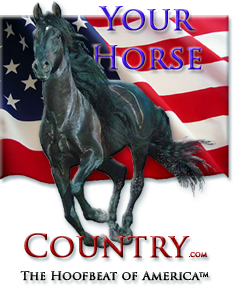| Sponsors:
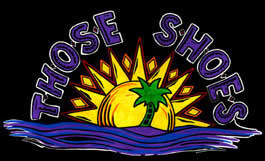
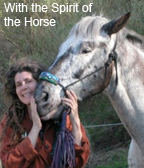

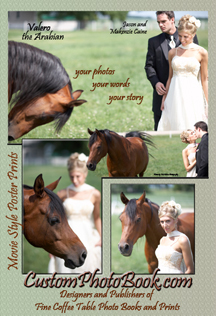
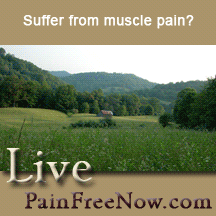

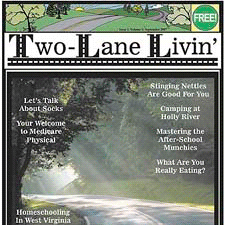
|
Two Lane Livin'
Your Horse Country Column 2011 Archives
2010
Column Archives - Includes "Running barefoot together, Horse
Fly problems, The Unwanted Horse, Natural Parasite Reducer, World
Equestrian Games, How a Horse's Stomach Works", and more... Written
by Dawna B. Smith, Journalist and Reporter, writer of the monthly
"Your Horse Country" column for Two
Lane Livin' Magazine To
view complete column, click on the month issue link provided.
January
2011 - A New Yearís Resolve. An animalís calendar is weather
and temperature defined. An animalís calendar is weather and
temperature defined, their bodies adjusting as needed to the changing
seasons. Itís amazing how quickly horses can shed their fuzzy winter
coats in preparation for warmer weather. This fall I noticed how quickly
they put on their winter coats. Weíve been taught to dress in layers,
take off when needed, and add when temperatures drop below our comfort
zones. Itís only during winter that I can run my fingers through their
plush coats, the hair thick and velvety, wondering how many more
opportunities will I have to feel that special texture. Read
more.
February 2011 -
Unconditional Love and how to get it from your horse. Horses
have many uses, from draft animals to gentle and willing therapeutic
assistants that help bring smiles to the sick or physically challenged,
but they also excel at unconditional love for their herd leader. Horses
are herd animals and hate being alone. When the cats follow us, theyíll
prick their ears forward and eagerly snuffle these smaller herd members.
The cats will twine themselves around the sturdy legs making sure that
each has been marked appropriately. Yes, the horses belong to them as
well. Read more.
March 2011 - The
importance of good dental hygiene for your horse. Spring
reminds me to check my calendar for my annual dental visit, and to call
the equine dentist to have the horsesí teeth floated. Unlike human
teeth, a horseís teeth will continue to grow. Pastured horses and not
stable kept often donít require frequent teeth floating, as the natural
act of grazing helps wear the teeth. Itís the front teeth that are used
to clip the grass close to the ground, while the cheek teeth on the top
and bottom act like mill stones to help break down the course forage for
easier digestion. Everyone worries about colic. Good dental hygiene
allowing for proper chewing of food can help prevent costly and sometimes
deadly colic problems. Read
more.
April 2011 -
Root crops as fodder for horses, cows, sheep, chickens, and other
critters, including YOU! Flat
land, a valued commodity in
West Virginia, is prized for home sites and gardens, but most often is
reserved for narrow hay fields that hug creeks and our serpentine roads.
Mountain top hay meadows arenít usually conducive to producing large
round bales, as they tend to want to roll down the hill. They also tend to
be drier and not produce as much forage, as our water soaked valleys do.
So, hay is often square baled on hill sides where flatlanders would not
even dream of driving a tractor or four-wheeler. Twenty-two percent of
West Virginia
residents are disabled, and itís possible that our rough farming terrain
and joy of outdoor sports are contributing factors.
Read more.
|
